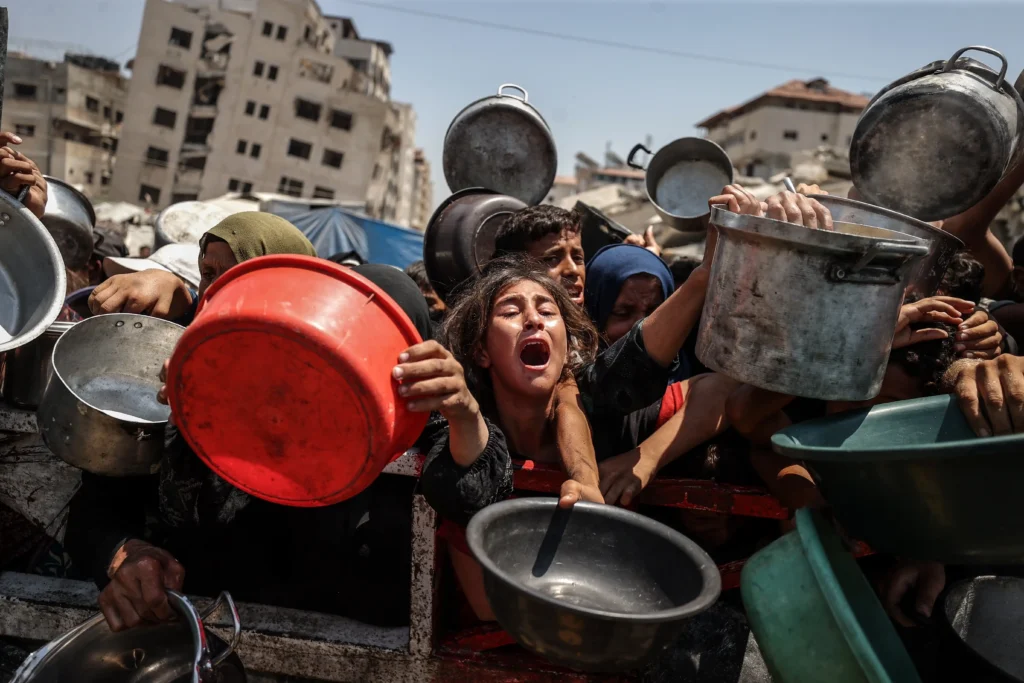Dutch foreign minister Caspar Veldkamp resigns after failing to secure sanctions against Israel, triggering political turmoil in the Netherlands’ caretaker government.
Table of Contents
Dutch Foreign Minister Quits Over Failure to Secure Sanctions Against Israel
Introduction
The Netherlands has been plunged into fresh political turmoil after Dutch Foreign Minister Caspar Veldkamp resigned on Friday, following a cabinet dispute over imposing sanctions on Israel.
Veldkamp’s resignation highlights the deep divisions within the caretaker government, which has struggled to reach a consensus on how to respond to Israel’s expansion of illegal settlements and its ongoing war in Gaza.
With protests erupting across the country and early elections on the horizon, Veldkamp’s departure adds a new layer of uncertainty to an already fragile political landscape.
Why Caspar Veldkamp Resigned
The resignation came after a heated cabinet meeting failed to produce an agreement on whether the Netherlands should adopt stronger sanctions against Israel.
Veldkamp, a member of the New Social Contract (NSC) party and a former ambassador to Israel, expressed frustration over his inability to take “meaningful additional measures” amid the worsening humanitarian situation in Gaza.
Veldkamp’s Statement
In his resignation letter, Veldkamp stated:
“We are living in a time of unprecedented geopolitical tension, where diplomacy matters more than ever. However, I was insufficiently able to take meaningful additional measures.”
His stance was supported by his party, the NSC, which accused coalition partners—the centre-right People’s Party for Freedom and Democracy (VVD) and the populist Farmer-Citizen Movement (BBB)—of failing to acknowledge the alarming humanitarian crisis in Gaza.
Growing Pressure Over Gaza and Israeli Settlements

The resignation follows the Netherlands’ decision to join 20 other countries in signing a joint declaration condemning Israel’s plan to build 3,400 illegal settlement homes in the occupied West Bank.
Critics argue that the new settlements would split the Palestinian territory, making a two-state solution increasingly impossible.
Dutch Protests Demand Action
The public outcry over the Netherlands’ perceived inaction on Gaza has intensified:
- In June 2025, between 100,000 and 150,000 people joined a demonstration in The Hague.
- It was the largest protest in two decades, demanding sanctions on Israel and stronger support for Gaza.
- Protesters accused the government of “turning a blind eye” to humanitarian violations.
Gaza’s Humanitarian Crisis Reaches Breaking Point
Veldkamp’s resignation comes amid mounting reports of a severe famine in Gaza.
According to UN-backed experts, Gaza City and surrounding areas are in the grip of an “entirely man-made” famine, caused by the ongoing conflict and restricted aid supplies.
Key findings from the Integrated Food Security Phase Classification (IPC):
- Only four famines have been officially declared since 2004.
- Gaza’s situation is now at catastrophic levels, with child malnutrition and deaths rising exponentially.
- The crisis has intensified calls for international sanctions and humanitarian interventions.

Political Fallout in the Netherlands
The crisis has deepened political instability within the caretaker government, which has been in power since June 2025 after the coalition collapsed.
Role of Geert Wilders and PVV
- The previous coalition fell apart when Geert Wilders, leader of the far-right Party for Freedom (PVV), withdrew his ministers.
- This triggered snap elections, scheduled for 29 October 2025.
- Veldkamp’s resignation further weakens the caretaker administration, putting additional pressure on Prime Ministerial leadership.
Netherlands’ Foreign Policy Divide
The debate over sanctions has exposed deep ideological divisions:
- NSC & Progressive Factions → Pushing for harsher sanctions against Israel and stronger condemnation of settlement expansions.
- VVD & BBB (Centre-Right Parties) → Advocating for diplomatic engagement, resisting measures that could harm Dutch-Israeli relations.
This policy deadlock ultimately led to Veldkamp’s resignation, weakening the country’s international stance during a time of geopolitical tension.
International Reactions to the Resignation
Veldkamp’s resignation has drawn global attention, especially given the Netherlands’ role in shaping European Union policies on Israel and Palestine.
EU’s Struggle for Unity
- The EU has been divided on how to respond to Israel’s settlement expansions.
- While some members support sanctions, others prioritize diplomatic dialogue.
- The Netherlands’ failure to adopt stronger measures could influence EU-wide decision-making.
Pressure from Human Rights Organizations
International NGOs, including Amnesty International and Human Rights Watch, have called on the Dutch government to:
- Impose economic sanctions on Israel.
- Increase humanitarian aid to Gaza.
- Support international investigations into alleged war crimes.
What Happens Next for the Netherlands
With Veldkamp’s exit, the Dutch caretaker government faces several challenges:
- Leadership Vacuum → The foreign ministry is without a strong voice amid growing international tensions.
- Election Uncertainty → The October snap elections could reshape Dutch foreign policy.
- Public Dissatisfaction → Large-scale protests are expected to continue in response to the Gaza crisis.
- EU Policy Influence → The Netherlands’ credibility within the European bloc has weakened.
Key Takeaways
- Caspar Veldkamp resigned after failing to secure sanctions against Israel.
- The decision has deepened divisions within the caretaker government.
- Gaza faces an unprecedented famine, intensifying public demands for action.
- Snap elections in October 2025 could significantly shift Dutch foreign policy.
- The Netherlands’ stance may impact EU policy decisions on the Israel-Palestine conflict.
FAQ – People Also Ask
Q1. Why did Caspar Veldkamp resign as Dutch foreign minister?
He resigned after failing to convince his coalition partners to adopt sanctions against Israel over settlement expansions and Gaza’s humanitarian crisis.
Q2. What caused the political instability in the Netherlands?
The coalition government collapsed after Geert Wilders’ PVV party withdrew ministers, leading to a caretaker administration and upcoming snap elections.
Q3. How does the Gaza famine impact Dutch politics?
The worsening humanitarian situation has increased public pressure on the government to take a stronger stance against Israel.
Q4. When are the Netherlands’ next elections?
Snap parliamentary elections are scheduled for 29 October 2025 following the coalition’s collapse.
Q5. Will the Netherlands impose sanctions on Israel in the future?
That will depend on the outcome of the October elections and the composition of the next ruling coalition.
